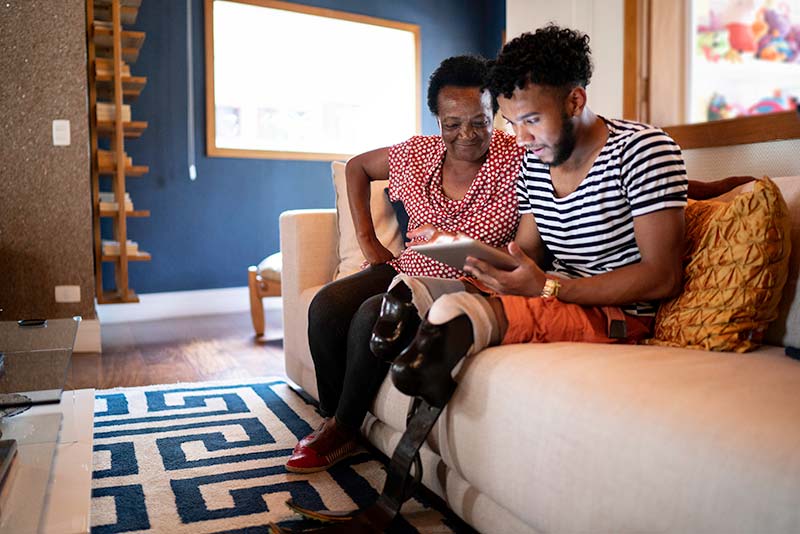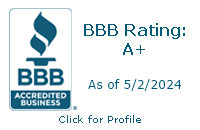As a home health aide, you need to take care of yourself to take care of others. Unfortunately, that wisdom can get muddled or lost in the home care space. Establish healthy self-care habits with the tips below.
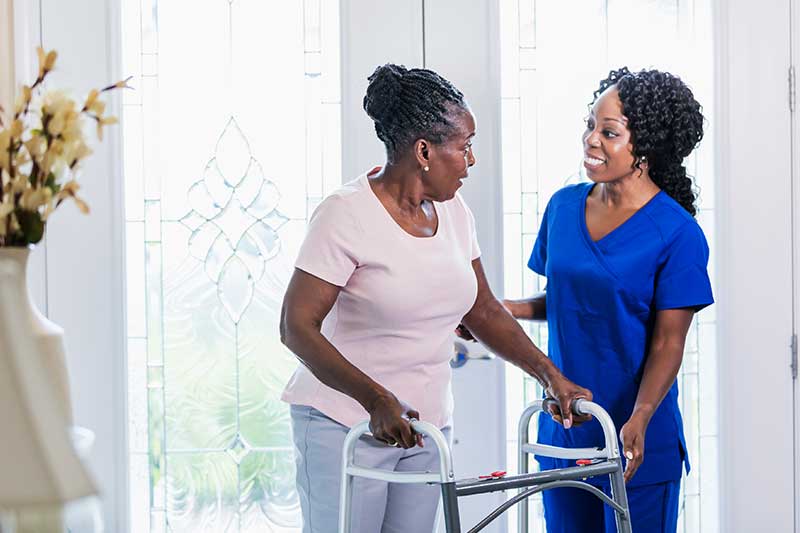
Schedule Me Time
Most seniors do not live in nursing homes. Only 3.6% do. Unfortunately, most seniors aging in place live alone, but more home health aides are stepping into the picture. With more Americans than ever before growing old and doing it at home, it is essential for home care aides and those participating in home health care services to know how to provide the very best care. Surprisingly, providing the best care starts with you.
To be the best version of yourself, you need to schedule time for yourself. In other words, if you are a home health aide, set aside 30 minutes to an hour every day to relax. Do whatever makes you happy. Kick your feet up and enjoy a cup of coffee in the morning. Read a book. Watch Netflix. Just make sure to take that time to unwind.
Spend Time With Friends and Family
Along with spending time alone, it’s also essential to spend time with your friends and family. Spend time with friends your age. As much as you may love to help the elderly in your area, it’s crucial to spend time with those your age.
Caregivers spend a lot of time with seniors and people a lot older than them, so don’t forget to call your best friends and have a nice day out on the town once in a while. No matter what you decide to do with your friends, it will allow you to stay present at this point in your life, and it is a great way to take care of yourself.
Spend time with family, as well. Family time can be a great stress relief and can help you be yourself again. Sometimes you might get lost in that caregiver mentality, which is okay! But it’s so important to allow yourself to take a break from being a health aide and spend time with your friends and family once in a while.
Mind Your Health
It is the ultimate irony. Caregivers go out of their way to dutifully care for others’ physical health and end up neglecting their own. Harvard Medical School emphasizes the importance of caregivers staying active. Just 30 to 60 minutes of daily physical activity lowers blood pressure and cholesterol and boosts energy. If you do not have a full 30 minutes, even 10 or 15 minutes of exercise is beneficial. Eating a healthy diet, getting adequate sleep, avoiding smoking and drinking, and going in for a check-up regularly is also essential.
Practice Breathing Techniques or Mindfulness
Other tools in your arsenal include breathing techniques, meditation, and mindfulness. Meditation or breathing techniques help you relax and promote an overall sense of calm. Research shows it can pack many more benefits as well.
According to a study in 2016, meditation promotes general well-being, gives you more energy, and helps improve memory and focus — all things that are great for you, your health, and your outlook when it comes to maintaining your overall well-being as a home health aide.
Those looking for a less formal practice with many of the same benefits can opt for deep breathing or “4, 7, 8 breathing” (inhaling for four seconds, holding the breath for seven, and exhaling for eight).
Find Your Community
There are plenty of other caregivers out there in the home health aide field. You do not have to go it alone. Look for in-person support groups or if it fits your schedule better or suits your tastes, go online to find other people acting in the same role. Social media, discussion forums, or even mobile apps are all great resources for finding other people like you.
Check In With Yourself
As a caregiver, you might forget to check in with yourself while checking in with all of the patients you take care of throughout your day, but that can be harmful to you. Checking in with yourself will help prevent burnout and ensure you aren’t becoming overly stressed. Being extremely stressed can lead to sleep deprivation and irritability, which isn’t good. So, take a moment to check in and ask yourself how you are doing. See if there’s anything you can do to help yourself at that moment and do so. It can be surprising just how much asking yourself how you are and what you can do for your overall health.
Checking in with yourself also means putting yourself first for a moment. It’s okay to put yourself first and ensure everything is okay. Even if your job entails putting others first, this doesn’t mean that you can’t do the same for yourself. This will ensure that you are taking care of yourself while taking care of the elderly you care for daily. Remember that taking care of yourself is the first step to taking care of the seniors in the nursing home you work at.
Taking care of someone else means taking care of yourself first. Even so, one-third of Americans fail to get enough sleep — and even that seemingly small misstep drastically affects our health.
Prioritize your diet, exercise, mental health, and overall care — just like you would like anyone else’s. Follow these tips, and you will be ready to be the best version of you every day.
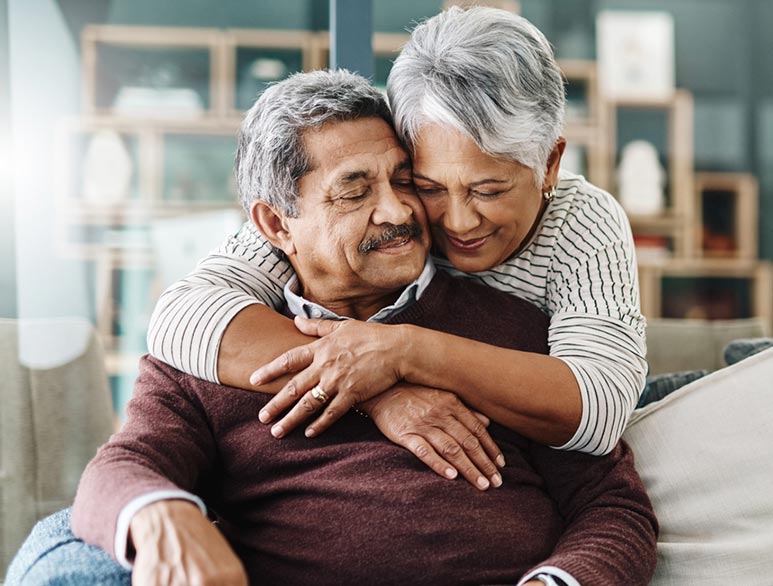
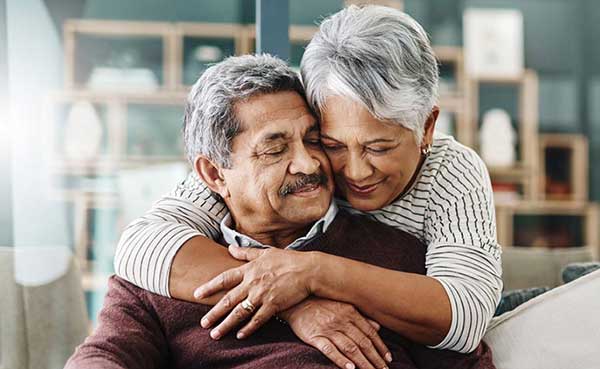
WE’RE HERE TO HELP
Request Your Free Consultation
Fill out this form for a completely FREE consultation with a care representative.
The Most “Liked” & Highest Reviewed In-Home Care Company in New York
Our team is here to make your life easier when you need help. That’s why our customers give us high ★★★★★ satisfaction ratings.
Resources And Blog Posts
